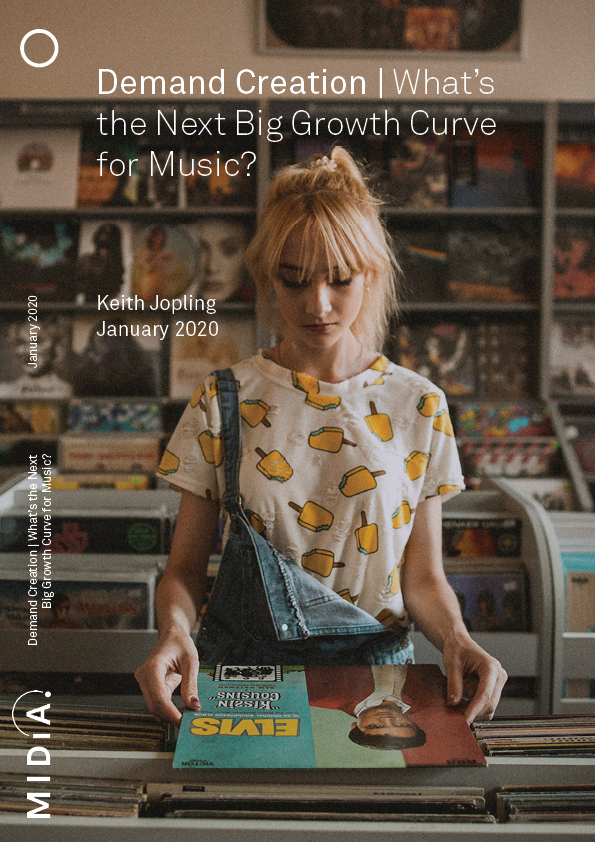Demand Creation What’s the Next Big Growth Curve for Music?

Get full access to this report and assets
If you are interested this report, or related reports such as Consumer Demand for Music Streaming Subscription Services , Global Music Forecasts 2015-2020 Declining Legacy Formats Cancel Out Streaming Growth and Music Consumer Behaviour Q2 2019 Fragmentation and Disruption get in touch today to enquire about a report bundle.
The 20,000 Foot View: Over the past years the music industry has seen highs and lows, mirroring the careers of many of the legacy artists the industry plays host to. The most spectacular successes in the music business, from the Sony Walkman to MTV, to iTunes and Spotify – have all generated demand for music in entirely new ways. These innovations succeeded because they tapped into latent demand, often opening up new consumption windows for music content or formats that already existed, but were not aggregated or focused towards a particular audience.
The biggest driver of new demand creation in the music business since the compact disc has been streaming, but as we head into the next decade the music industry is already witnessing a slowdown in streaming growth. With the industry still riding the wave of growth and excited about what’s next – be it new tech applications or next-generation services – we take a brief qualitative, analytical look at the industry’s previous success stories. Can they shed light on the formula for success in unlocking yet more latent demand? Do new opportunities for demand creation in music even exist as we head into the post-peak attention era? We look at which of the current crop of next-wave innovations in music is likely to succeed and how the industry should look to harness these as we head into the next decade.
Key Insights
- The set factors associated with previously successful generation in music are product, audience, business model, brand, use and platform
- Spotify offered access with a freemium business initially resonating with a millennial ready to engage with streaming
- Spotify benefitted a flywheel effect once its was distributed through Apple’s growing store, and subsequently through Facebook
- The Sony success was co-dependent on the format becoming the mass market carrier of choice
- In 1989, Sony Walkman had shipped million cumulatively (Sony Corp.) – the year that cassette sales peaked at billion (IFPI)
- The music (labels and publishers) has responded previous innovations through cautious licensing by concentrated promotion via a partner or format
- The raft new innovations suggests a very multi-faceted approach is required
- Bytedance is licensing a new music service very different use cases driven the social sharing of songs mini soundtracks
- In the attention economy, with competition from and gaming, new demand creation music is almost impossible
- The share ear is finite, with podcasts audio books also growing. The industry’s growth must come from value propositions that monetise fandom
- To drive the music sector will need that improve discovery, augment the or the experience, and add to the consumption already happening
- In this we apply this hypothesis to analysis on the new innovations the music sector: smart speakers, music and high-definition audio, VR AR music experiences, and social and music
Companies and brands mentioned in this report: Amazon Music Unlimited, Apple Music, Bytedance, Facebook, Instagram, MTV, Viacom, Napster, Sirius XM/Pandora, Sony Walkman, Sony Music, Spotify, TikTok, Universal Music, Warner Music, YouTube
